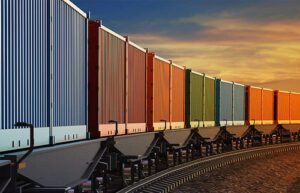
Subscribers of the Kyivstar mobile operator can now communicate at their “home” tariffs in 16 EU countries.
According to the press service of the company on Wednesday, up to nine EU countries (Poland, Slovakia, Romania, Hungary, Moldova, Germany, Italy, Lithuania and the Czech Republic), where for more than a month subscribers can use mobile communications and the Internet at tariffs, as in Ukraine , Kyivstar adds France, Spain, Austria, Bulgaria, the Netherlands, Latvia and Estonia.
In addition, as noted, the operator increases the list of tariff plans for which new conditions apply. In contract and business clients, as before, they work in almost all tariffs, and for prepaid subscribers they will be available not only in the tariffs “Your” and “All together”, but also in part of the offers for 2019-2020.
“In collaboration with foreign partners, we were able to significantly change the conditions of international roaming. Thanks to this, more than 80% of our customers can use calls and the Internet abroad by simply paying their own tariff. This is not only cheaper and more convenient for them, but is very important for Ukrainian telecom. The more customers abroad pay their tariff and use Kyivstar services, the more we will be able to invest in the restoration of infrastructure in Ukraine and in supporting customers in areas with hostilities,” Oleksandr, head of the additional services and operator relations department at Kyivstar, is quoted. Galushko.

Tariffs for the transportation of grain cargo by rail in Ukraine in January-March 2022 increased by 15% compared to the first quarter of 2021, and by 6.5% compared to the fourth quarter of 2021, according to the website of the State Service Ukrainian statistics.
In its report, the agency does not provide data on the growth of the tariff rate in monetary terms.
In the first quarter of 2022, the tariffs for the transportation of chemical and mineral fertilizers increased more significantly – by 41.7% compared to January-March 2021, while the tariff for the transportation of timber increased in price similarly to grain cargoes – by 15%.
In general, tariffs for freight transportation by rail in Ukraine increased by 25.4% in the first three months of 2022.

Kyiv will leave tariffs for hot water at the level of the previous heating season until May 31, Kyiv Mayor Vitali Klitschko said.
“Today, in the conditions of martial law, when people found themselves in a difficult financial situation, we made an important decision on the provision of public services in the capital. This decision will ensure the use of tariffs for hot water and heat energy for its preparation until May 31 at the level of the previous heating season. That is, we will extend these tariffs without raising them!” Klitschko said after a meeting of the city council on Friday.
The Kyiv mayor recalled that the city authorities managed to keep tariffs for heat and hot water in the 2021-2022 heating season – “despite a significant increase in the costs of producing these services.”
“So today, in difficult conditions for the state and people, the city continues to restrain tariffs. Further adjustment of the cost will depend on the price of gas, which will be set at the state level. Today, we are doing what we can and what depends on us,” he said.

Mobile network operators Kyivstar and Vodafone Ukraine are in dialogue with the Ministry of Digital Transformation on the issue of smartphoneization of the elderly.
“Preliminary consultations with the Ministry of Digital Transformation on this project were held. But the implementation and details of the project have not yet been finalized,” the Kyivstar press service told Interfax-Ukraine.
The company recalled that the operator is systematically working to overcome digital barriers between generations: in 2019, the educational project Smartphone for Parents was launched; at the beginning of 2020 a special line of tariffs for subscribers over 60 years old were introduced.
“Digital services, for which we, among other things, are building coverage, cannot be obtained on feature phones. Therefore, smartphoneization is a strategic task at the national level. We are already in dialogue with government authorities on this issue. At the moment, we are waiting for project proposals, which we can study,” the press service of Vodafone Ukraine told Interfax-Ukraine.
The company said that not all Ukrainians still use smartphones: according to the operator, about 28% still use feature phones. In most cases, these are older subscribers.
“The authorities have indeed turned to us with a request for a preferential tariff for pensioners. lifecell is ready to join the working group on this project. Details on the development of the tariff will be discussed at joint meetings with the Ministry of Digital Transformation,” lifecell’s press service told Interfax-Ukraine.
The operator also said that among its already existing offers, one can choose convenient tariffs for each subscriber.

The rise in railway tariffs for freight transportation may increase the load on road transport and road infrastructure, as well as increase prices for final products in the energy and construction sectors.
This opinion was expressed by representatives of core business segments at a press conference at Interfax-Ukraine.
“Ukrzaliznytsia, as a monopoly carrier, is once again simply raising tariffs. What will this mean for the cement industry: firstly, the prices for the transportation of coal will rise, and secondly, the prices for the transportation of raw materials and additives to cement will rise. Thirdly, prices will rise directly for the final product for the consumer,” Executive Director of the Association of Cement Producers of Ukraine (Ukrcement) Liudmyla Kripka said.
According to preliminary estimates of the association, such an increase in tariffs will affect both the cost of cement and the final product for the consumer by about 5-8%, which, in turn, will increase the cost of construction projects.
At the same time, Kripka said that Ukrzaliznytsia may not receive the expected income from the increase in tariffs due to the transfer of enterprise logistics to the segment of road transportation.
“As a result, Ukrzaliznytsia will not receive income, but the load on road transport will increase,” she said.
Director General of the Federation of Transport Employers of Ukraine Volodymyr Husak agreed with this forecast. According to him, Ukrzaliznytsia will not be able to implement the plan to receive about UAH 2 billion by the end of this year from the increase in freight rates.
“This money will not be available, as we will see an accelerated withdrawal of Ukrzaliznytsia’s clients primarily to highways. This trend has been observed for several years… Due to the reorientation of goods to highways, there will be an additional load. Roads will collapse faster. There will be no effect from the implementation of the Big Construction program of the President of Ukraine,” he said.
In addition, Husak said that due to the rise in the cost of transportation of building materials – crushed stone, cement – the volume of the Big Construction program will also decrease.
At the same time, maintaining low prices in the passenger segment and an increase in the cost of cargo transportation will ultimately lead to an increase in tariffs in the energy sector, Deputy Chairman of the Federation of Employers of the Fuel and Energy Complex of Ukraine Serhiy Chekh said.
“What will the implementation of this order [of the Ministry of Infrastructure] mean for us, power engineers? This is extra UAH 40-50 per tonne of transported coal and about 3% growth in the cost of electricity at the exit from the thermal power station,” he said.
Experts emphasize that for the effective development of the rail transport market, it is necessary to ensure equal competitive conditions, introduce projects for the use of private locomotives, and update legislation in this area. In addition, it is necessary to update the management and supervisory board of Ukrzaliznytsia for effective governance, to carry out its reform in accordance with the government’s plans.
As reported, earlier in July, the Ministry of Infrastructure of Ukraine published a draft order on a two-stage increase in tariffs for cargo transportation of a group of goods of 1 and 2 tariff classes from September 2021 by 8%, and from January 2022 – by 20.4% and 6.5%.

The vast majority of Ukrainian citizens are concerned about infrastructure problems in their cities and villages, unemployment, housing and utility tariffs, as well as mass renaming of cities, villages and streets. Meanwhile, the issues of security and fight against corruption, which are being promoted by politicians, raise concern among fewer citizens.
This is shown by the results of a joint sociological survey, which was conducted by Active Group and the Expert Club and presented at a press conference hosted by the Interfax-Ukraine News Agency.
According to the survey, which was performed on July 10-12 via a phone interview, more than a half of citizens are concerned about quality of roads (54%), condition of public places (44.7%), condition of the infrastructure inside buildings (43.5%), unemployment (34.2%) and housing and utility tariffs (31.1%).
Almost a third of Ukrainian citizens (29.2%) are unhappy with mass renaming of streets, villages and cities all over the country.
Some 26.7% respondents are concerned about the lack of parking lots.
At the same time, the issues of security and corruption worry not more than one tenth of the population (10.6% and 8.7% respondents, respectively), while rural residents are not concerned about security and corruption at all.
While commenting on the results of the survey of Active Group and the Expert Club, co-founder of the Expert Club Danylo Bohatyriov said that he was not surprised by the fact that the population is concerned about infrastructure-related problems in the first place. It is a predictable response of people to broken roads and rotten communications. He added that while the authorities are at least trying to repair roads, the infrastructure of buildings lacks their attention even despite the fact that the housing and utility tariffs jumped by twelve times over the recent six years.
“The lack of jobs and the cost of utility services raise concern among almost equal number of respondents. And this is quite clear as the second problem originates from the first one. If they don’t have jobs, they are unable to pay for utility services. It also appeared that the issue of renaming streets and other objects is a matter of concern for 30% of respondents. Earlier, experts used to underestimate the level of concern with the issue among the population and disregard it,” the expert said.
Bohatyriov explained the loss of interest to the problem of corruption among the population by citizens’ exhaustion and disappointment.
“There has been a lot of reports on fight against corruption, but the key corrupt officials are still not imprisoned, and the hysterical background created around the issue especially during Poroshenko’s tenure simply made a significant number of our compatriots tired. Therefore, we recommend the political forces to stop exploiting this rotten topic and in fact take care of the infrastructure issues, creation of new jobs, revision of utility tariffs and stop this foolish campaign of renaming everything,” the expert said.
Additional information about the survey is available on the website of Active Group and on the Expert Club YouTube channel: